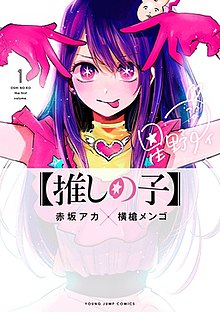Imagine this: you go to YouTube, Twitch or any other video-content platform. You find some creators that you particularly like and you end up following them and their content-creation endeavors. For many, this is the end of their relationship between creator and consumer. Yet there’s a certain type of person that YouTube creators as Twitch streamers are bound to end up having to deal with: the parasocial.
What are Parasocial Relationships?
First of all, I’ll have to explain the concept of parasocial relationships. In its most purest form, it is a one-sided relationship where one person feels highly connected to another, while the latter does not share the same sentiment. In most cases though, these dynamics often consist between an audience and an entertainer. It is easy to imagine how these one-sided relationships come to fruition: someone watches something and they happen to like the entertainer on the screen. They end up following their social media and, whether knowingly or not, forms a connection to the entertainer. This on its own is often harmless, but when the audience considers these entertainers as actual friends and treat them the same as close friends is when we talk about the negative nature of parasocial relationships.
The idea of parasocial relationships has already been a thing since the early days of television. While not a new concept, YouTube and Twitch have become new platforms for these kinds of relationships and interactions to foster. The rise of livestreaming platforms allows the audience to directly connect with and engage with the entertainer. Both with the use of a live chat and donations, the audience vies for the entertainer’s attention out of all the other chatters. It is this competitive chat-scene that Twitch has which

The ‘Dual-Edged Blade’ of Streaming
Entertainers, in practice, are personas. The person behind the screen is rarely ever the person they actually are. When people search for entertainment to consume, they are often drawn to the personas they resonate with. In turn, the audience wants to feel connected to these personas. Unfortunately, for a group of people, this desire can only be fulfilled by going beyond a viewer/streamer relationship, instead wishing for there to be an actual sense of friendship. Unfortunately, streamers have mentioned that for people who are longing for actual connections, these types of relationships will never be fulfilling. Likening these one-sided relationships to fast food, both of these serve to fill a certain longing, but will never be a substantial alternative.
The presence of the streamer can serve for the creation of proper connections however, this being in form of the communities around them. Friendships formed in these spaces, wherein actual symbiotic relationships are formed are the more fulfilling relationships that people actually need. As such, they claim that the ‘streamer,’ or entertainer, is a double-edged sword. While audiences are tempted to cross the boundaries, treating the streamers as friends, the communities that are formed around these streamers, and the proper connections formed out of them should be treated as real and valuable.
Image of Innocence in the Asian Industry
As I mentioned earlier, the idea parasocial relationships is not a new concept. Nor is it something that is exclusive to the livestreaming platforms. People can be fans of any sort of entertainer, and that includes the people within the music industry. The ones in Korea and Japan are some of the worst offenders, and they are fully aware of it. Idols are often contractually not allowed to date others. Doing so would guarantee the image of innocence of their idols, in part encouraging a lustful gaze of the audiences. The entertainment industry of Asia encourages the development of unhealthy parasocial relationships. The anime and manga series Oshi No Ko comments on the reality of this industry. In the pilot episode, the poster girl Ai Hoshino gets murdered by a stalker after he finds out that she gave birth to children – a clear sign of betrayal to her lifelong fans and a blemish of her innocence. While a work of fiction and entertaining in nature, this series consistently comments on the hidden truths and harsh realities which happens behind-the-scenes of the shows and titles we love.



In my opinion, a big part of the issue is not just that fans feel overly familiar with entertainers, but that this leads them to think they can police all their choices. You kind of touch upon this in your section about innocence in the Asian industry, and how idols are not allowed to date. You link this to lustful desires in fans (who think they might actually enter a relationship with the entertainer), which I definitely agree is the case, but I think things like this also fall under wanting the creator to conform to the parasocial fan’s moral compass.
I have frequently seen people online get upset about their favorite YouTube creator growing up and changing their behavior accordingly (e.g. swearing, drinking, making sexual innuendos, etc.). They act as if their ‘child’ is getting corrupted but the reality is that they’re talking about an adult who they don’t know and who definitely does not know them. Another example is when an entertainer makes a (non-harmful) decision the fan does not agree with, which leads the fan to publicly shame them.
I think important part that you touched upon was purposefully created image (of innocence). It is quite obvious for the most of us that parasocial relationships can lead to bad things for both of the parties involved and often said parasocial relationships naturally come with being an entertainer/celebrity. However, sometimes (and in the case you mentioned) these relationships are not seen as something negative but rather as something profitable and are enforced onto the entertainers by, for example their labels. Your case about idols in Korea/Japan made me also think about fanfics. Which, in most cases, are really not harmful. But they are basically created because people don’t have a “true” version of what their idol is, so then they can come up with dreams and assumptions. For example, writing fanfics which imagine the reader together with an idol or two idols in a couple. I believe the fanfics keep the popularity of the idols and overall the conversation about them, which leads to the profit for their label/company.